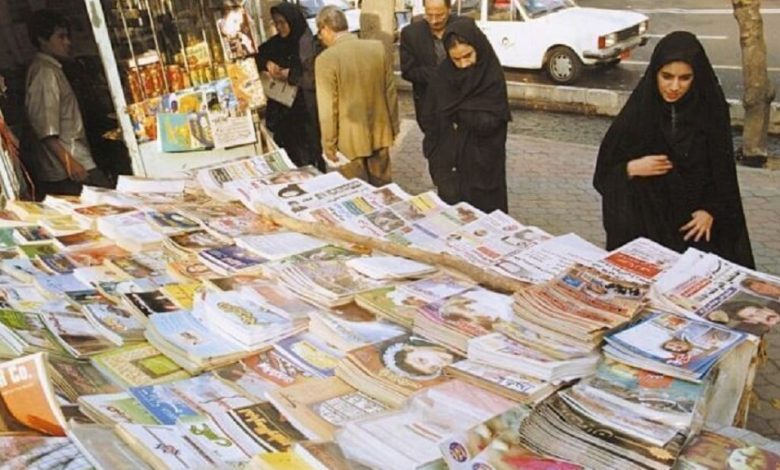Iran’s State Media: You Don’t Realize the Depth of Crisis!

Written by
Mansoureh Galestan
It goes without saying that Iran’s social and economic have reached an irreversible point, and Iranian society’s restiveness increases daily due to the regime’s corruption, ineptitude, and oppression. Now the situation has reached a point that even Iran’s state media acknowledge the “depth of the crisis.”
In its article on December 27, the state-run Etemad daily warns regime officials that they “do not realize the depth of the crisis,” reminding them that their hypocrisy and using Islam to justify their inhumane actions no longer work.
“Unfortunately, the performance of the Islamic Republic and its officials has increased people’s dissatisfaction, and this dissatisfaction has decreased the clerics’ popularity among people,” Etemad daily wrote.
“Even [mullahs] acknowledge the appalling way people treat clerics in public. People’s participation in Friday Prayer and attending mosques has sharply decreased. Polls show that people’s trust in [mullahs] has decreased,” Etemad daily adds, confirming people’s hatred toward the regime.
“One of the most important issues is the expansion of absolute and relative poverty, as well as the deepening of development gaps between different parts of the country. The poverty line in the country has increased nearly 40% from 2019 to 2020,” the state-run Sharq daily acknowledged on December 27.
“The poverty rate has also increased significantly due to economic problems and inflation in recent years. In 2017, 22% of the population was under the poverty line, and this number reached 32% in 2019. Now, thousands of citizens fall under the poverty line every day,” Sharq adds.
“When we read that in that last year alone, the number of people living in absolute poverty has increased 30 million, we could realize the horrible dimension of increasing poverty in Iran,” wrote the state-run Etemad daily on December 26.
“Rising inflation and unemployment, and declining economic growth, have affected the lower classes more than any other segment of society. Social resilience in such circumstances, influenced by facts on the ground and economic conditions, has decreased, and the number of trade unions and [other people’s] protests have also increased,” Sharq daily writes in this regard.
Sharq acknowledges that “that in some provinces, in the past few years, compared to the previous period, the number of protesting groups of citizens has increased, thus increasing the number of public protests and subsequent unrests.”
“The protests’ quality and essence have become more diverse, and the number of people participating in this type of protests has increased. The news of these protests, along with other dissatisfying factors, are circulating on social media, creating national solidarity,” Sharq acknowledges.
Sharq then warns regime officials that the persistence of this situation could have “more concerning consequences.”
“The intensification of poverty and inequality and the immigration of more people under the poverty line would have serious repercussions. The social patience threshold is decreasing daily and indicate looming unfortunate incidents,” Sharq writes.
On December 28, the state-run Aftab-e Yazd daily also reflected the regime’s fear of another uprising. “The fact is that if the current economic situation continues, we will surely see more strange and tragic incidents,” Aftab-e Yazd wrote.

